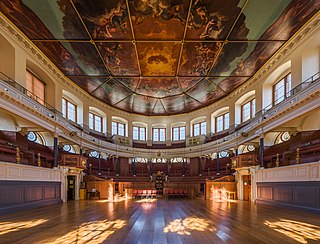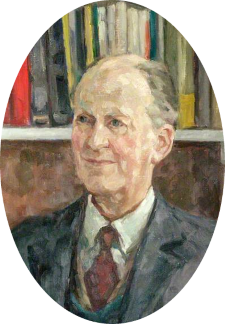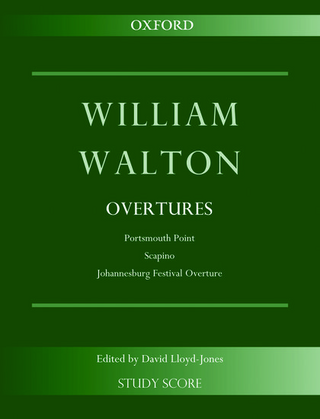Related Research Articles

Humphrey William Bouverie Carpenter was an English biographer, writer, and radio broadcaster. He is known especially for his biographies of J. R. R. Tolkien and other members of the literary society the Inklings. He won a Mythopoeic Award for his book The Inklings in 1982.

Eugene Ormandy was a Hungarian-born American conductor and violinist, best known for his association with the Philadelphia Orchestra, as its music director. His 44-year association with the orchestra is one of the longest enjoyed by any conductor with any American orchestra. Ormandy made numerous recordings with the orchestra, and as guest conductor with European orchestras, and achieved three gold records and two Grammy Awards. His reputation was as a skilled technician and expert orchestral builder.

A burlesque is a literary, dramatic or musical work intended to cause laughter by caricaturing the manner or spirit of serious works, or by ludicrous treatment of their subjects. The word is loaned from French and derives from the Italian burlesco, which, in turn, is derived from the Italian burla – a joke, ridicule or mockery.

Howard Harold Hanson was an American composer, conductor, educator and music theorist. As director for forty years of the Eastman School of Music, he raised its quality and provided opportunities for commissioning and performing American classical music. In 1944, he won a Pulitzer Prize for his Symphony No. 4, and received numerous other awards including the George Foster Peabody Award for Outstanding Entertainment in Music in 1946.

Allen Forte was an American music theorist and musicologist. He was Battell Professor Emeritus of the Theory of Music at Yale University and specialized in 20th-century atonal music and music analysis.

The Mills Blue Rhythm Band was an American big band active during the 1930s.

Ornithology, formerly The Auk and The Auk: Ornithological Advances, is a peer-reviewed scientific journal and the official publication of the American Ornithological Society (AOS). It was established in 1884 and is published quarterly. The journal covers the anatomy, behavior, and distribution of birds. It was named for the great auk, the symbol of the AOS.

The Big Broadcast of 1936 is a 1935 American comedy film directed by Norman Taurog, and is the second in the series of Big Broadcast movies. The musical comedy starred Jack Oakie, Bing Crosby, George Burns, Gracie Allen, Ethel Merman, The Nicholas Brothers, Lyda Roberti, Wendy Barrie, Mary Boland, Charlie Ruggles, Akim Tamiroff, Amos 'n' Andy, Bill "Bojangles" Robinson, and Argentinian tango singer Carlos Gardel.

The Oxford Bach Choir is an amateur choir based in Oxford, England. Founded by Basil Harwood in 1896 to further the music of J. S. Bach in Oxford, the Choir merged in 1905 with the Oxford Choral & Philharmonic Society, whose origins can be traced back to 1819. Oxford Bach Choir therefore has a choral tradition which extends back over two centuries. The choir performs most of its concerts in the Sheldonian Theatre in central Oxford, but also performs in St John the Evangelist Church, Oxford, located on the Iffley Road.
David Adam Cairns is a British journalist, non-fiction writer and musician. He is a leading authority on the life of Berlioz.
The Oxford University Music Society (OUMS) is one of the oldest societies in the University of Oxford, England, tracing its origins back to 1872. The Society was formed in 1916 by the merger of the Oxford University Musical Club, founded in 1872, and the Oxford University Musical Union, founded in 1884. Originally called the Oxford University Musical Club and Union, it changed its name to the Oxford University Musical Society in 1983.

Sir Thomas Henry Wait Armstrong was an English organist, conductor, composer and educationalist. He was from a musical family and his early career was as a church and cathedral organist. From the 1920s onwards he was a broadcaster for the BBC giving talks as well as playing.
John Douglas Louis Veale was an English classical composer.

A Village Romeo and Juliet is an opera by Frederick Delius, the fourth of his six operas. The composer himself, with his wife Jelka, wrote the English-language libretto based on the short story "Romeo und Julia auf dem Dorfe" by the Swiss author Gottfried Keller. The first performance was at the Komische Oper Berlin on 21 February 1907, as Romeo und Julia auf dem Dorfe. Thomas Beecham conducted the British premiere at the Royal Opera House, Covent Garden in London on 22 February 1910. The US premiere was on 26 April 1972 in Washington, D.C.
Thomas Reginald Jacques was an English choral and orchestral conductor. His legacy includes various choral music arrangements, but he is not primarily remembered as a composer.
Sir Jack Westrup, was an English musicologist, writer, teacher and occasional conductor and composer.

The Oxford University Jazz Orchestra (OUJO) is a jazz orchestra based in the University of Oxford, England. It was founded in 1991.

Johannesburg Festival Overture is a composition for orchestra by the English composer William Walton, commissioned to mark the seventieth anniversary of Johannesburg in 1956. It is a short, lively piece, fast-moving throughout.
The Severn Suite, Opus 87, is a musical work written by Sir Edward Elgar. It is a late composition, written in 1930, the result of an invitation to write a test piece for the National Brass Band Championship. It was dedicated to his friend, the author and critic George Bernard Shaw.
Frank Stewart Howes was an English music critic. From 1943 to 1960 he was chief music critic of The Times. From his student days Howes gravitated towards criticism as his musical specialism, guided by the advice of the conductor and professor Sir Hugh Allen and the critic H. C. Colles.
References
- ↑ Parker, Joanna. "Early Subscription Concerts and London Orchestras" . Retrieved 19 January 2025.